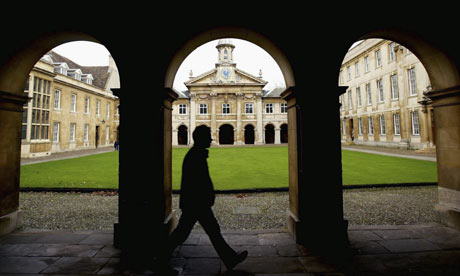Travel guide Lonely Planet has come up with a list of the holiest places in the world where the faithful believe the handiwork of the divine is evident.

SINGAPORE (Reuters Life!) - It is often said that God works in mysterious ways, and travel guide Lonely Planet has come up with a list of the holiest places in the world where the faithful believe the handiwork of the divine is evident.
This list is from Lonely Planet's "1000 Ultimate Experiences" guide and is not endorsed by Reuters.
1. IFE, NIGERIA
The Yoruba supreme god Oludumare sent his son Oduduwa down a gold chain to the site of present-day Ife, with some sand, a cockerel to scratch a hole and a palm nut to plant in it, creating the world and 16 Yoruba clans. Ife today is a large university town with some superb cast-bronze heads and the energy you'd expect from the universe's first city.
2. JERUSALEM
For the ancient Israelites, the world began from the Ark of the Covenant, resting in the Holy of Holies in Solomon's temple, sited on the Foundation Stone - the foundation of the world. This place is revered by Muslims as the spot from which Prophet Mohammed ascended to heaven. It's now housed within the 7th-century Dome of the Rock, whose golden cupola dazzles visitors across Jerusalem.
 |
| Rain clouds are seen over the Dome of the Rock, on the compound known to Muslims as al-Haram al-Sharif, and to Jews as Temple Mount, in Jerusalem's Old City. |
3. TEMPLE OF SOMNATH, GUJARAT, INDIA
The faithful believe the temple witnessed the creation of the universe. Purportedly constructed by the Hindu moon god, Somraj, then rebuilt numerous times by luminaries including Krishna himself, the current edifice isn't quite what you'd expect from a temple that's supposedly older than time itself.
4. MOUNT KENYA, KENYA
There are ample reasons to feel awed by Africa's second-highest mountain. Its loftiest peak, 5,199m Batian, is a daunting challenge even for experienced technical climbers, while those who top the 'trekkers' summit', Point Lenana (4,985m), contend with breathlessness, a pounding head and subzero chills. Then there's the fact that you're trespassing on the home of a supreme deity. Kenya's most populous tribe, the Kikuyu, believe Ngai resides atop the mountain, whose English moniker derives from Kere Nyaga (Mountain of Brightness).
 |
| An aerial view of Mount Kenya. |
5. MOUNT KAILASH, TIBET
Mighty Kailash is four-times sacred. For Buddhists it's the home of vengeful Demchok; it's where the founder of Jainism attained nirvana; it's the seat of all power for the pre-Buddhist faith; and for Hindus it's the home of Shiva, the destroyer. The 'navel of the world', Kailash is also known as Mt Meru, legendary abode of gods and birthplace of four holy rivers. Devotees of all four faiths make the circular pilgrimage around this isolated, hulking peak in order to gain good fortune and religious merit.
6. MOUNT SINAI, EGYPT
The mount is where God is believed to have revealed to Moses the Ten Commandments. Still standing is St Catherine's Monastery, built in the 6th century at the location of the burning bush that gave Moses his orders. Bedouin guides on site help visitors to explore the region and get an insight into local traditions.
 |
| St Catherine's Monastery on Mount Sinai stands surrounded by the steep cliffs under the blazing desert sun in Egypt's Sinai Peninsula. |
7. TAI SHAN, CHINA
From the body of the creator of the universe, Pan Gu, were formed five sacred Taoist mountains, the most holy of which is Tai Shan, in Shandong province. A climb up the 1,545m peak passes temples, tea houses, rivers, ancient inscriptions and ethereal mountain views.
 |
| A cable car descends from cloud-covered Tai Shan overlooking Taian in Shandong province, eastern China. |
8. ISLA DEL SOL, LAKE TITICACA, BOLIVIA
Machu Picchu might be magical, but if you want to see where the seeds of the mighty Inca empire were reputedly sown, take a boat from the small town of Copacabana to the 'Island of the Sun', floating in azure Lake Titicaca. At the northern end of the island, in the Chincana site, sits the sacred rock from which the bearded god Viracocha drew Manco Capac and his sister Mama Ocllo, the founders of the Inca dynasty. Hike around the island to take in Inca ruins and watch the sun set over the picture-perfect lake.
 |
| Indigenous Bolivians of the Aymara culture hold their hands up to receive the first rays of the sun as they celebrate the Southern Hemisphere's winter solstice on the Isla del Sol (Island of the Sun) in Lake Titicaca. |
9. MOUNT OLYMPUS, GREECE
Murder, infidelity, incest, doublecrossing: the tales of the Greek gods read like a particularly lurid soap opera. Their home, Mt Olympus, is a suitably dramatic backdrop. It's a two-day ascent to reach the immortals' vertiginous lair, 2917m Mytikas peak, through verdant forests and past striking views. Though the climb doesn't require superhuman powers, before attempting it, it might not hurt to visit the site of ancient Dion, where Alexander the Great made sacrifices.
 |
| A priestess dances as she participates in a rare ceremony honoring Zeus, the king of the ancient Greek gods, along with hundreds of worshippers of the 12 Ancient Greek Gods of mount Olympus at the Temple of Olympian Zeus in central Athens. |
10. LAKE CHELAN, WASHINGTON, USA
Native Americans believe the Great Chief Above created the world, all the animals and humans, for whom he left an instruction manual: a series of red ochre pictographs depicting hunting and other activities. Though some are now underwater and many have been defaced, a few can still be seen on rocks at the northern end of Lake Chelan in Washington state.
(Editing by Miral Fahmy)

